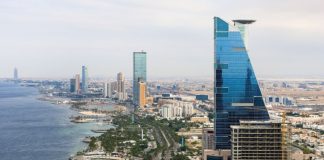The current pandemic has accelerated one of the greatest workplace transformation of our lifetime. How we work, learn, communicate, and of course, where we work, will be changed forever. It will not be business as usual as many anticipated.
One of the big questions that are now being asked is: “What is HR’s role in all this?” Whether we like it or not, the COVID-19 pandemic has caused a disruption in the workplace. It is up to the leadership and the HR of a company to adapt to this new normal and figure out how to handle the many different changes in environment, practices, policies, etc, in order to set companies back on the track towards recovery.
In collaboration with EasyWork, HR Asia recently held a webinar on 30 April 2020 in order to discuss this new normal for HR and the workplace transformation to anticipate in the post-covid era.
Titled “The New Normal: Rebooting HR for Business Unusual”, the webinar was hosted by Dato’ William Ng, Publisher/Editor-in-chief, Business Media International; the panellists included Hardy M. Jacob, HRM, Tata Consultancy Services, Philippines, Murali Mohan Kalvakalva, Senior Manager MOD, Philip Morris, Thailand, and Steven A. Yudiyantho, SVP, Human Capital Strategy & Talent Management, Bank Mandiri, Indonesia.
Each of the panellists come from different markets and industries, thus providing a diverse amount of viewpoints and ideas from across different sectors. The insights provided are invaluable as it demonstrates how businesses of different sizes and sectors adapted and transformed themselves from within to overcome or at least mitigate the effects of COVID-19 and its consequences on the business ecosystem.
During the discussion, the panellists describes what the ‘new normal’ entails. With many of the world’s nations experiencing some form of lockdown, it is unquestionable that we will be stepping out into a new world once the COVID-19 pandemic is over. How will we conduct meetings going forward? How will engage with our employees? What are the parameters to observe to receive feedback and to reward people? All these are among the many questions asked regarding the next step forward.
Each and every aspect of this ‘new normal’ permeates into employee lifecycle. As such, HR needs to be adaptable and flexible enough to address these new hurdles while being careful not to harm both the company’s and employees’ wellbeing.
The panellists all agreed that now is the time for HR take the opportunity to listen to employees, harness the ideas and enthusiasm of employees about how to use the situation to become better. The best companies will redouble efforts, pull their talent closer, communicate, and invest in talent for future growth.
Following the main discussion, the webinar was then opened to allow viewers to ask panellists questions on more specific topics, including the opinions of each of the panellists on what they think would be effective HR strategies to overcome te many new challenges of this new era.
Mr Kalvakalva explains how equipping HR managers with the right tools and authority can help make them become role models for their teams. These managers are to become the ears of the company, listening to the feedback of employees so that the company can better address concerns and issues that the employees are experiencing.
Mr Jacob added that it is also a crucial time for HR to collaborate with business. He states that communication is key and that planning for the future does not mean up until the end of the lockdown, but also further beyond in the post-crisis era.
For Mr Yudiyantho, he believes that strong leaders with a clear purpose are needed now more than ever. The importance of a shared purpose cannot be understated, especially when many are now forced into a remote working setting.
You can find the full webinar and others in the series, as well as subscribe for future webinars on HR Asia’s YouTube channel here.





















